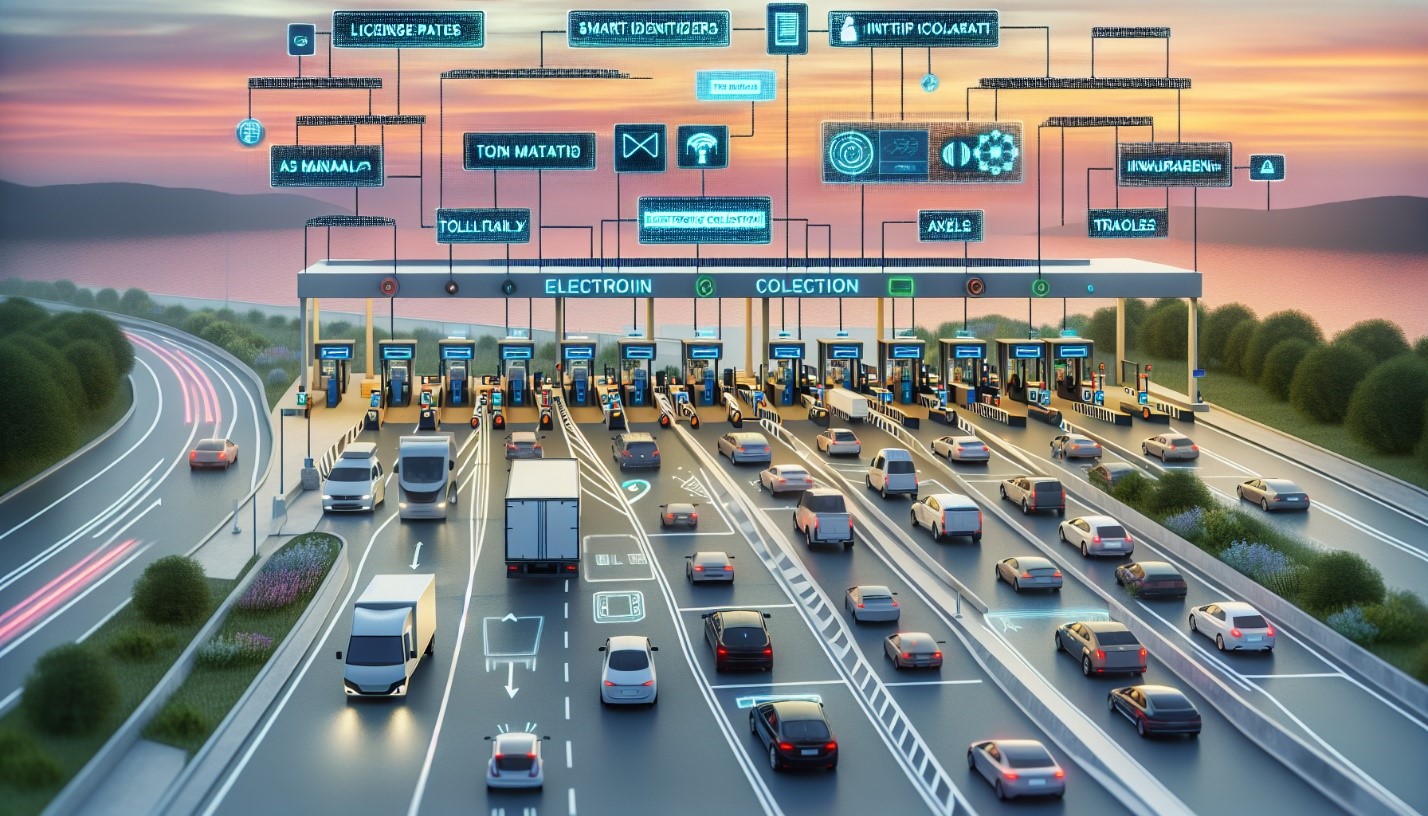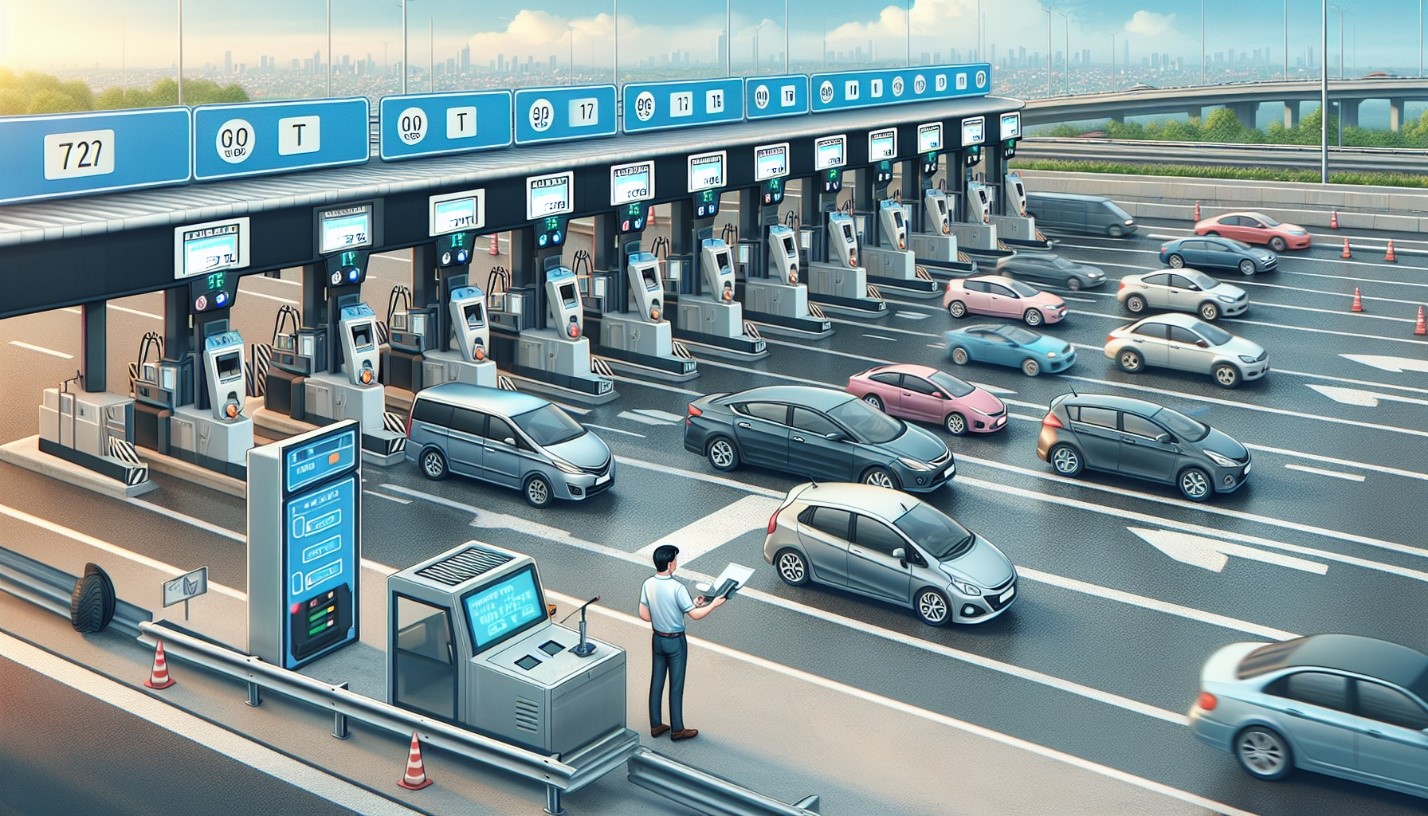
Top Electronic Toll Collection Companies: The Future of Toll Collection Industry
In the rapidly evolving digital era, the transport industry is undergoing a significant transformation, a key aspect of which is the growing adoption of electronic toll collection systems.
The Electronic Toll Collection (ETC) system is a technological solution for toll collection on highways and expressways without causing any traffic disruptions. The primary goal of ETC companies is to reduce traffic congestion, minimize fuel consumption, and improve overall road safety.
Why ETC?
The adoption of ETC systems presents several benefits, including:
1. Efficient toll collection
2. Reduction in traffic congestion
3. Lower fuel consumption
4. Improved road safety
How Does ETC Work?
The ETC system uses advanced technologies such as Radio Frequency Identification (RFID), Dedicated Short-Range Communication (DSRC), Infrared, Satellite-Based GNSS/GPS, and Video Analytics.
// Pseudo-code for ETC system
if (vehicle passes toll)
{
scan RFID tag;
deduct toll amount from prepaid account;
}
else
{
capture vehicle details using video analytics;
send toll bill to vehicle owner;
}
Evolution and Growth of the Electronic Toll Collection Industry
The electronic toll collection industry has witnessed substantial growth in recent years, with the market estimated to expand from USD 8.3 billion in 2022 to USD 11.4 billion by 2027. This robust growth, projected at a CAGR of 6.5% from 2022 to 2027, can be attributed to several factors:
1. Reduction in traffic congestion, accidents, and environmental pollution
2. High government support for increased deployment of electronic toll collection systems
3. Increased convenience due to cashless payments
4. Technological advancements in transportation infrastructure
Key Players in the Electronic Toll Collection Industry
The industry is dominated by several established players, including:
1. Kapsch TrafficCom AG (Austria)
2. Conduent, Inc. (US)
3. EFKON GmbH (Austria)
4. TransCore (US)
5. Thales (France)
6. Raytheon Technology Corporation (US)
7. Cubic Corporation (US)
8. Siemens (Germany)
These companies have adopted both organic and inorganic growth strategies, including product launches, partnerships, contracts, expansions, and acquisitions, to strengthen their market position.
1. Kapsch TrafficCom AG
Established in 1991 and headquartered in Vienna, Austria, Kapsch TrafficCom AG is part of the Kapsch Group. The company is a leading provider of information and communication technologies, solutions, and services for intelligent transport systems (ITSs).
Kapsch TrafficCom has two main segments – Electronic Toll Collection and Intelligent Mobility Solutions. The company offers various technologies for electronic tolling, with fully automated solutions helping customers ensure mobility, prevent congestion, and reduce pollution.
The company has recently expanded its tolling services by acquiring a 35% interest in tolltickets GmbH.
2. Conduent, Inc.
Formerly known as Xerox Corporation, Conduent, Inc., is a US-based company offering business process services with expertise in transaction-intensive processing, analytics, and automation. The company’s services include electronic toll collection, patient support services, and prepaid card processing, among others.
With its innovative technology-based electronic toll collection solutions like the SureView Detection System and Automated License Plate Recognition system, Conduent has positioned itself as a leader in the electronic toll collection market.
3. EFKON GmbH
EFKON GmbH, an Austria-based company, is a key player in the electronic toll collection industry. The company specializes in delivering cutting-edge tolling solutions, with a strong focus on innovation and technological advancement.
4. TransCore
TransCore is a US-based company delivering innovative products and services to transportation departments and agencies across the globe. The company focuses on providing engineering solutions for safer, more reliable travel on roads, bridges, tunnels, and highways.
As a global leader in the transportation industry, TransCore offers innovative, technical solutions and engineering services for next-generation open road tolling (ORT) and traffic management systems.
5. Thales
Thales, a France-based company, is a significant player in the electronic toll collection industry. With its wide-ranging capabilities in digital security and smart transportation solutions, Thales has had a considerable impact on the industry.
6. Raytheon Technology Corporation
Raytheon Technology Corporation, a US-based firm, is a key player in the electronic toll collection market. The company stands out for its advanced technology solutions and systems designed to enhance toll collection efficiency.
7. Cubic Corporation
Cubic Corporation, a US-based company, specializes in providing integrated solutions that increase situational understanding for transportation, defense C4ISR, and training customers worldwide.
8. Siemens
Siemens, a Germany-based company, is known for its innovative and reliable solutions in the field of electronic toll collection. The company's advanced tolling systems and services play a crucial role in making transportation more efficient and sustainable.
Innovative Technologies in Electronic Toll Collection

The electronic toll collection industry is marked by constant innovation, with companies continually developing and implementing new technologies to enhance efficiency and convenience.
1. Use of RFID technology: This technology allows for non-stop, automatic toll collection, drastically reducing congestion and improving traffic flow.
2. Use of satellite technology for toll collection: This technology uses satellite positioning to determine a vehicle's location and calculate tolls based on the distance traveled. This approach allows for dynamic pricing, which can be adjusted based on factors such as time of day, traffic conditions, and vehicle type.
3. The integration of artificial intelligence (AI) and machine learning (ML) into electronic toll collection systems is another significant technological advancement. These technologies enable the systems to learn from past data, predict traffic patterns, and optimize toll collection processes, thereby enhancing their efficiency.
Benefits of Electronic Toll Collection Systems
The benefits of electronic toll collection systems are manifold. First and foremost, they eliminate the need for manual toll collection, significantly reducing congestion and improving traffic flow. This not only saves time for motorists but also results in substantial fuel savings.
Electronic toll collection systems offer a higher level of convenience. Motorists no longer need to carry cash or stop at toll booths. Instead, tolls are automatically deducted from their prepaid accounts or charged to their credit cards. This seamless, cashless system greatly enhances the user experience.
These systems are highly efficient in terms of revenue collection. They eliminate the possibility of human error and fraud, ensuring that all due tolls are accurately collected. Furthermore, they allow for dynamic pricing, enabling authorities to adjust toll rates based on various factors, thereby optimizing revenue collection.
80% of the Forbes Global 2000 B2B companies rely on MarketsandMarkets to identify growth opportunities in emerging technologies and use cases that will have a positive revenue impact.
- Food Packaging Market Size Set for Strong Growth Through 2030 Amid Rising Demand for Convenience Foods
- Fertilizers Industry Set to Grow at 4.1% CAGR Through 2030
- Leading Automated Guided Vehicle Companies 2024: An In-depth Analysis
- CHARGED UP: SHIFT TO E-MOBILITY AND THE EVOLUTION OF TRANSPORTATION
- Global Automotive Market: Predictions For 2024
The Current State of the Electronic Toll Collection Market
The global electronic toll collection market is currently in a state of rapid growth. According to a report by MarketsandMarkets, The Electronic toll collection market is projected to reach USD 11.4 billion by 2027, Growing at the CAGR of 6.5% during the forecast period. This growth is largely driven by increasing investments in transportation infrastructure, growing adoption of cashless transactions, and advancements in RFID and GPS technology.
Asia Pacific is expected to witness the fastest growth due to increasing urbanization, rising disposable income, and the presence of fast-growing economies such as China and India. North America, on the other hand, currently holds the largest share of the market, owing to the widespread adoption of electronic toll collection systems and the presence of major market players in the region.

Predicted Trends for the Future of Electronic Toll Collection
The future of the electronic toll collection industry looks promising, with several key trends expected to shape its evolution.
- increasing integration of AI and ML into electronic toll collection systems. This is expected to further improve the efficiency and accuracy of these systems, thereby enhancing their adoption.
- increasing use of satellite technology for toll collection. Increasing use of satellite technology allows for dynamic pricing, which can be adjusted based on various factors, thereby optimizing revenue collection. As such, the adoption of satellite technology is expected to grow significantly in the coming years.
- The growing demand for intelligent transportation systems (ITS) is another key trend. As urban populations continue to rise, there is an increasing need for smart solutions to manage traffic and improve transportation efficiency. Electronic toll collection systems, being an integral part of ITS, are expected to see increased adoption as a result.
Challenges and Opportunities in the Electronic Toll Collection Industry
Despite the numerous benefits and positive growth prospects, the electronic toll collection industry faces several challenges. High installation costs are a major hurdle, particularly in developing countries where resources are limited. Additionally, privacy concerns related to the collection and use of driver data pose a significant challenge. There are also issues regarding interoperability, particularly in regions where multiple electronic toll collection systems are in use.
These challenges also present opportunities for innovation and growth. For instance, the development of cost-effective systems could significantly boost adoption in developing markets. Similarly, the creation of robust data protection measures could help alleviate privacy concerns, thereby enhancing consumer trust and acceptance. Moreover, the standardization of electronic toll collection systems could resolve interoperability issues, further driving market growth.
Case Studies of Successful Electronic Toll Collection Implementations
Several case studies illustrate the successful implementation of electronic toll collection systems.
- E-ZPass system in the United States. Launched in 1993, the E-ZPass system is now used in 17 states, making it one of the largest interoperable toll collection systems in the world. The system has proven to be highly effective in reducing congestion, improving traffic flow, and increasing revenue collection.
- AutoPASS system in Norway. Introduced in 1987, the AutoPASS system has been instrumental in streamlining toll collection in the country. The system uses a combination of RFID and DSRC technology to enable automatic toll collection at high speeds, thereby minimizing disruption to traffic flow.
- FASTag system in India is another noteworthy example. Launched in 2014, the FASTag system leverages RFID technology to facilitate automatic toll collection on Indian highways. Despite initial resistance, the system has gained widespread acceptance and has been successful in improving traffic management and revenue collection.
Conclusion
The electronic toll collection industry's future looks promising, with companies continually innovating and advancing their technologies to enhance efficiency and user convenience. As these electronic toll collection companies continue to evolve, we can anticipate a future where toll collection becomes seamless, contributing to smarter and more sustainable urban mobility.


